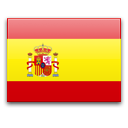FAQs
Our factory is located in Santiago de Surco Peru.
We source our cacao from the San Martin, Ucayali, Junin, and Cusco regions of Peru.
Yes.
We pay our organic cooperatives the current futures price of
cocoa as per the ICE futures exchange price in $USD plus a $.30 cent per kg organic premium and an additional fair trade premium if the customer requires fair trade certified cacao.
The current futures price at present (current date: October 12th 2021) is higher than the minimum fair trade price. The price we pay for cacao is higher than the minimum price required for fair trade cacao.
We provide the following species of organic Peruvian cacao.
A. Criollo
B. Trinitario
C. CCN51
D. Porcelana (White Cacao)
We offer our customers the following 5 purchasing options of cacao derivatives and chocolate.
Option #1 50% Trinitario, 25% CCN51, & 25% Criollo
Option #2 100% Criollo
Option #3 70% CCN51, 30% Trinitario
Option #4 50% Trinitario, 50% Criollo
Option #5 50% Criollo, 50% Porcelana
Used interchangeably there are distinct differences between cacao and cocoa, however there is no absolute rule or agreement on when to use the term cacao or cocoa.
The general industry accepted differences between using the terms “cacao” versus “cocoa” is that the term cacao refers to cacao beans and derivatives of the bean (nibs, paste, powder, & butter) that have no additives or fillers within the product and instead consist only of cacao.
When producers add sugars, colors, additives, or fillers within a cacao product it is generally accepted to change the term of the product from cacao to cocoa, implying that the product has been processed with other ingredients.
Some reference the term cocoa versus cacao relating to the amount of heat that the cacao beans are roasted at which can be very misleading and reference lower roasted cacao derivatives as cacao even if substantial additives or fillers are used in the final product.
Considering that we do not produce our cacao with any additives or fillers and are a nut free, allergen free, dairy free, GMO free, and soy free facility we reference all of our production as cacao as opposed to cocoa.
We only produce and manufacture certified organic cacao.
We can provide conventional cacao and cacao products as a “trader” and source from other manufacturers for our clients on request, however, we do not produce any conventional cacao products in our factory, only certified organic.
Raw cacao and chocolate are produced at lower temperatures than roasted cacao.
When cacao beans are toasted at temperatures less than 43 °C the beans and subsequent cacao nibs are a raw product. Raw paste is produced by refining the nibs at temperatures less than 43 °C. Raw powder and raw cacao butter are produced when the paste is either cold pressed or pressed at temperatures less than 43 °C.
Critics of raw cacao claim that the fermentation process of the cacao beans results in temperatures more than 70 °C, and as such claim that raw cacao does not exist considering the fermentation process requires such temperatures in the fermentation process.
Unfermented cacao beans as well as fermented cacao beans that do not undertake any heat being applied (also considered to be raw cacao) are not fit for human consumption due to the extremely high microbiological levels (sometimes resulting in total plate counts >10^5 ppm.) Completely raw cacao beans after fermentation that have no heat applied are extremely high risk to consume due to the statistical presence of e-coli and salmonella that could be in the product.
Unless our customers advise us otherwise, even when we produce raw cacao derivatives, we toast the beans for 1 minute at a temperature of 83 °C to ensure that the final product is safe for consumption. The difference that the higher temperatures have in reduced nutritional benefits is marginal when compared to the risks of consuming cacao beans that could have trace elements of high microbiological contamination proven in hundreds of microbiological tests we have undertaken on both our raw materials and finished product.
When entities provide "100% Criollo cacao" it is a commonly accepted trade practice to provide 70-80% criollo as most farms cannot grow only 1 species of cacao.
When cacao is marketed as "criollo cacao" the term criollo is not necessarily referencing the species of beans used for production but using the term criollo as an adjective to describe the concept of "native" or "original".
In Peru, people refer to "criollo" as an adjective for the concept of native or historical. For example, people market their restaurants as a "criollo restaurant" and might say "tonight I want to eat criollo." they are referring to the term criollo as the concept of original or native Peruvian. As such, it can be confusing for customers in the cacao market considering that the word "criollo" is used to identify both a species of cacao bean as well as the concept of native/ original, so when people see the term criollo cacao or criollo chocolate they think they are getting 100% criollo cacao beans however they might not be and most of it is marketing whereby the term criollo is being used to identify the cacao as being 100% Peruvian / native (not mixed from other countries) and as such identify "criollo cacao" to reference this concept, not as an indication of using 100% criollo cacao beans. Very few cacao entities undertake a selection and sourcing process to guarantee or provide 100% criollo cacao beans despite what the packaging may advise.
Some do not consider white chocolate as chocolate considering there is no cacao paste in white chocolate and typically consists of cacao butter, a sweetener and dairy. We produce a dairy free version of white chocolate on request. Contact us for additional information.
Weight Per Chocolate Bar: 80 Gr.
BOX#1: 18 Display Cases Containing 12 Bars Per Display = 216 Bars. Total Weight: 4.204 KG
BOX#2: 13 Display Cases Containing 12 Bars Per Display = 156 Bars. Total Weight: 3.584 KG
BOX#3: 4 Display Cases Containing 12 Bars Per Display = 48 Bars. Total Weight: 1.868 KG
Blocks are used for industrial applications and are available in 25 and 5 kg sizes.
Bars are used for retail applications and are available in 80 gram bar sizes.
Wafers are also referred to as coins or discs and are used in both industrial, wholesale, and retail applications that are produced in a small circle shape with a diameter of about 2.5 cm that are uniform in appearance.
Kibbles are also referred to as chunks or trozos and are random sized pieces of cacao where blocks are taken and broken into much small pieces more suitable for smaller industrial, and wholesale applications. They appearance is random and the pieces are not uniform in size.
Chips are commonly found in baking ingredients such as chocolate chip cookies, muffins and are used both in large and small scaled industrial, wholesale and retail applications.
Microns are the particle sizes evident in both cacao paste and chocolate. The level of microns relates to the texture of the product.
When you eat cacao paste and/or chocolate with a low micron count the product has a very smooth texture and is more akin to the type of chocolate referred to as “melt in your mouth” product. The lower the micron count the smoother texture. A higher micron count relates to a more course and rough texture of cacao paste/ chocolate.
We provide samples free of charge to our clients who want to taste or undertake QA analysis of our products. The cost of the freight is assumed by the customer and can be ordered online through our ecommerce website.
Select the third option on the drop down menu of each product as "SAMPLE" and complete the online checkout. The costs of the freight to send the samples is done online through the e-commerce platform through the website.
We send all samples through FedEx. Tracking information is available through the FedEx tracking website.
Our default sample size is 200 grams.
For orders under $1,000 we accept credit cards and PayPal
transactions undertaken through our website. For orders over $1,000 we accept
wire transfers and bank deposits. Please contact ventas@organicrainforest.com for additional banking information.





